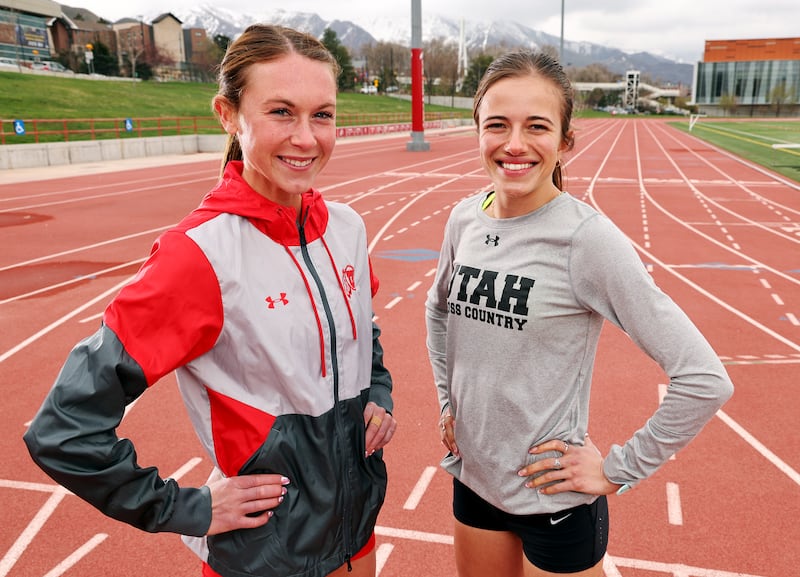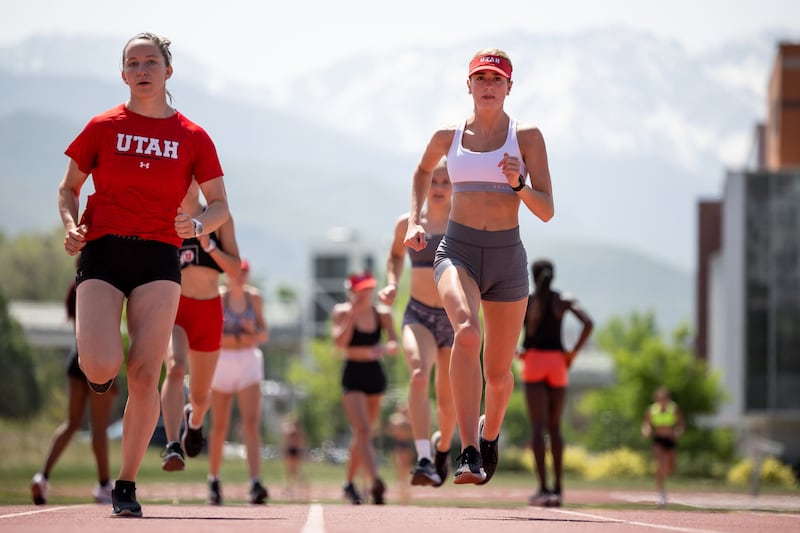When distance runner Bella Williams arrived at the University of Utah from the small village of Digby, England, way back in 2016, the Utes’ women’s track team had just scored a grand total of three points at the Pac-12 Track & Field Championships.
“We recruit from (all over). We start within the state and then we build from there and go regionally and nationally and internationally. We dipped into the (transfer) portal, and that certainly helped us.” — Utah women’s track and field coach Kyle Kepler
The program was struggling a bit, but not in disarray, and the facilities were mostly adequate, so Williams believed only good things were on the horizon for not only Utah women’s track and field, but another program she was joining — Utah women’s cross-country.
Boy, was she right.
“It has been amazing to witness this and be a part of it,” the sixth-year graduate student said last week as she and the Women of Utah — as the team is called — prepared for this week’s NCAA West Preliminary Meet in Sacramento.
At the Pac-12 meet earlier this month, the Women of Utah (the Utes don’t have a men’s track and field team) had their best showing at the league championships since Utah joined the Pac-12 in 2011-12. They scored 45 points, 22 more than their previous high mark of 23 in 2014.
That was good enough for a ninth-place finish, ahead of Arizona, Arizona State and Washington State. It marked more significant progress for the program, which has struggled to find its footing against schools such as Oregon, which won the meet with 158.5 points.
What’s more, two Utah athletes brought home the school’s first-ever individual titles, as Boise State/Colorado transfer Emily Venters won the 10,000-meters race and BYU transfer Simone Plourde won the 1,500 meters with a meet- and school-record time of 4:09.48.
“Truly inspiring performances,” said Utah coach Kyle Kepler. “We had a group of women who competed their hearts and guts out for every point.”
Williams added to Utah’s point total, claiming five points when she placed fourth in the 5,000 meters with a time of 16:23.51.
“Honestly, I think it has just building year on year,” Williams said. “It had already begun to improve a lot I think over the last few years before my arrival. Then as you start to do well you just build confidence that you can recruit better, be more confident as a team that you have a lot of good people. That just builds year on year. I think it is a natural development.”
Finally cracking the rankings, catching BYU
The Utes moved up two spots to No. 16 in the National Outdoor Rankings on Monday. The program cracked the top-25 rankings last month for the first time since 1982. The Utes were ranked as high as No. 14 a few weeks ago, and are ranked higher than rival BYU (currently No. 20) for the first time in program history heading into the NCAA’s West Prelims.
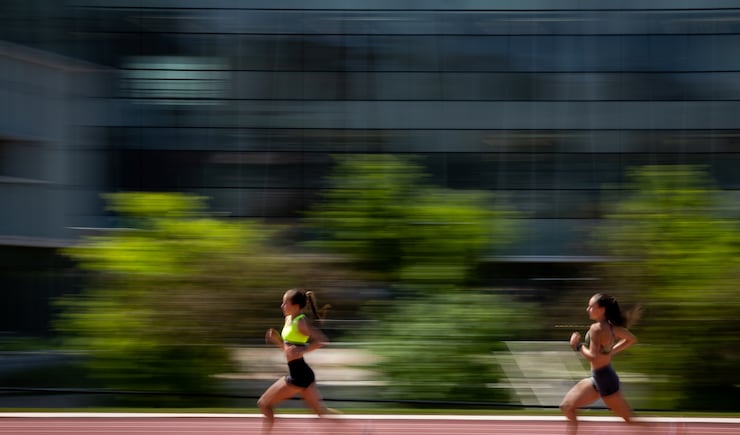
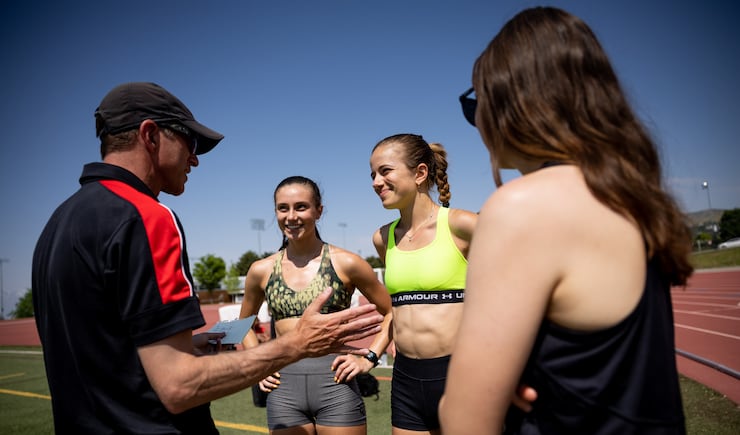
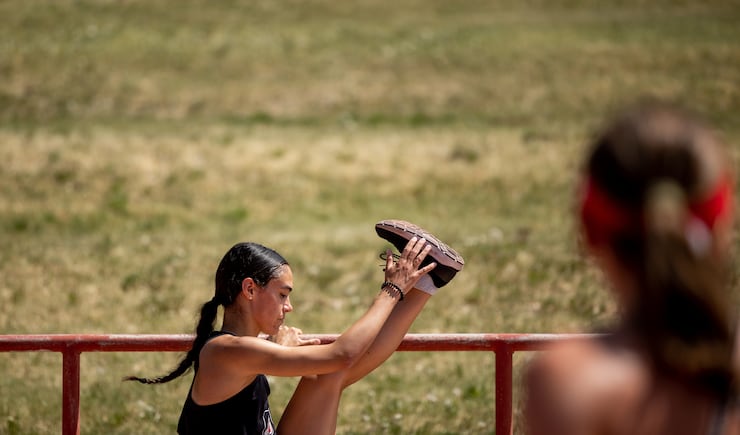
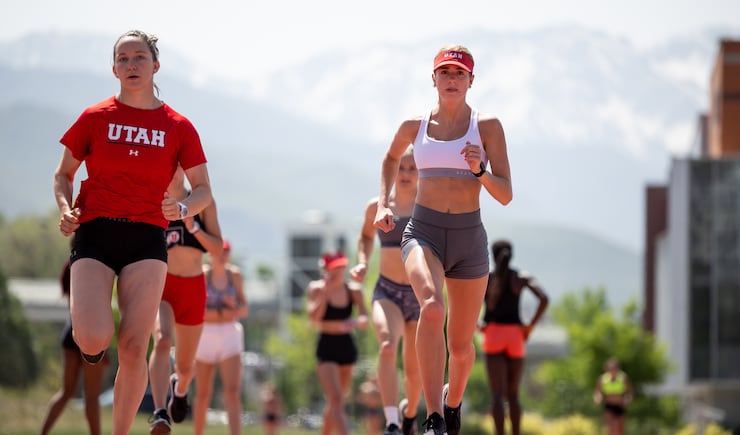
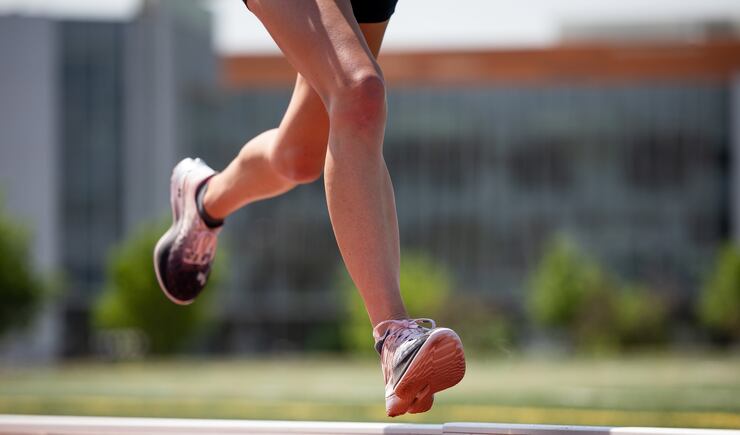
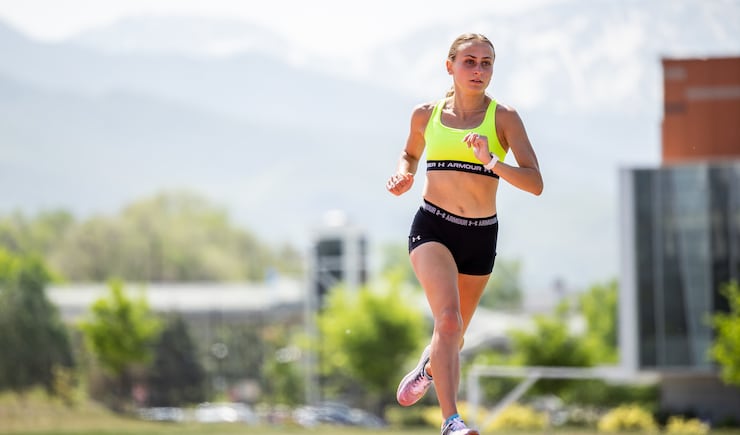
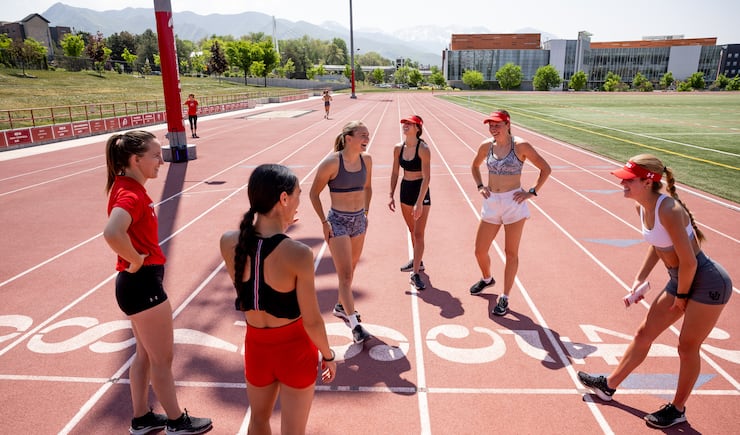
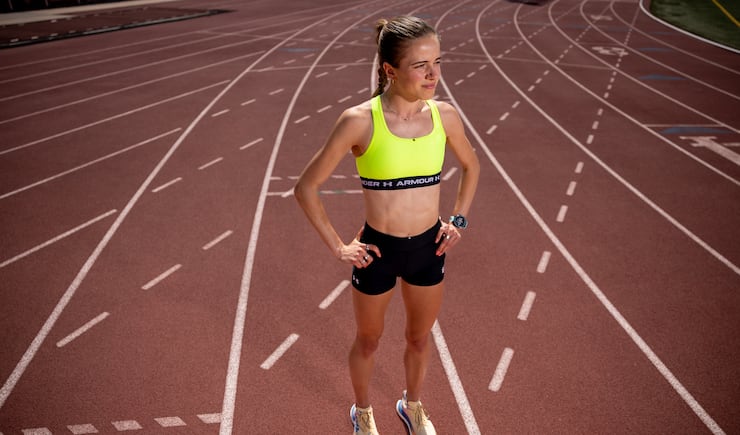
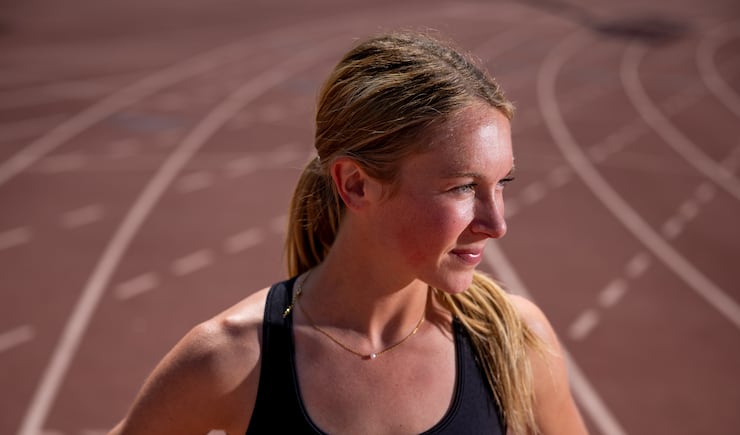
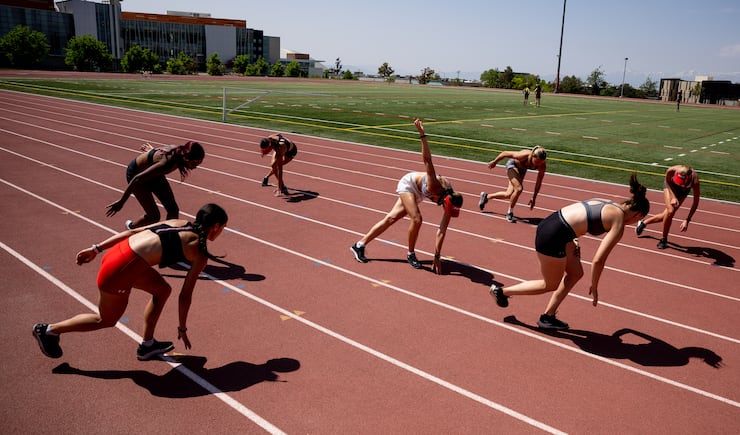
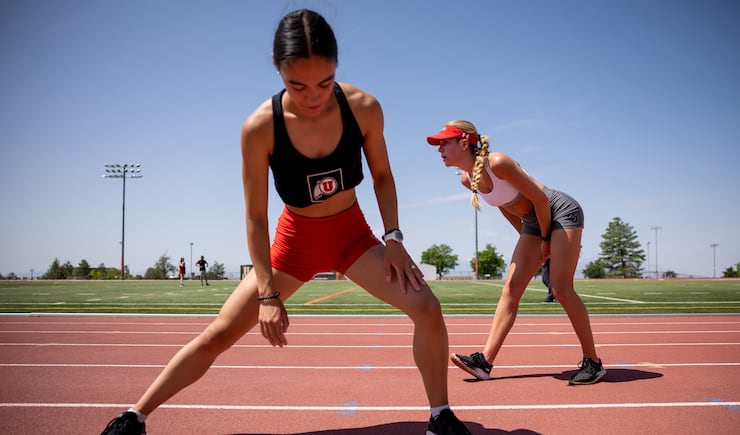
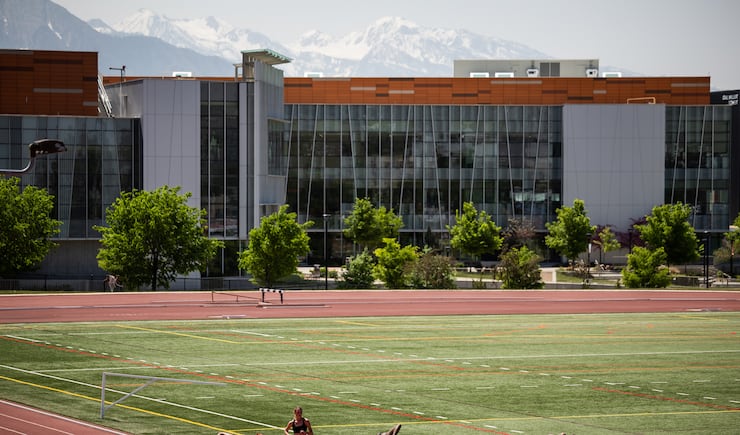
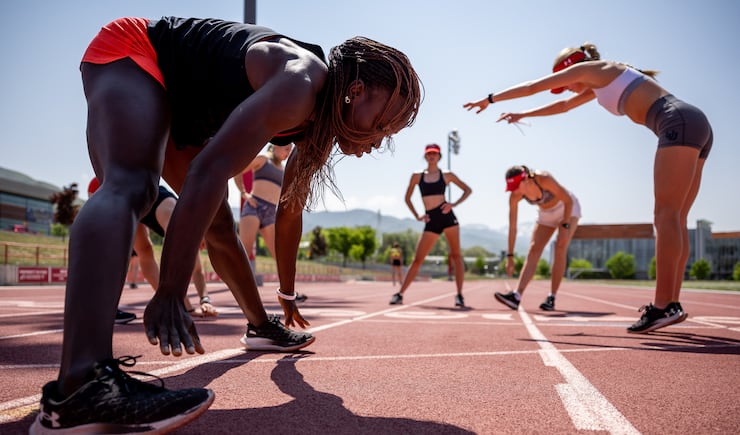
“I have great assistant coaches who got great kids to believe in what they are doing and even what we are doing, and believe in each other,” Kepler said of the program’s rise. “So we have put it together using the modern tactics.”
His staff includes Charlee Linton, Rebecca Rhodes and former Utah great Grayson Murphy, who is a voluntary coach.
“We recruit from (all over),” Kepler said. “We start within the state and then we build from there and go regionally and nationally and internationally. We dipped into the (transfer) portal, and that certainly helped us.”
That’s probably an understatement, considering the recent Pac-12 individual champions (Plourde and Venters) started their careers at other schools, as did distance runner Keelah Barger (Arizona), hurdler Dinedye Denis (Morgan State/Albany), 400 and 800 star Josefine Eriksen (Texas-Rio Grande Valley) and distance runner Ariel Keklak (Wake Forest/Johns Hopkins).
“I don’t think there is any way around (using the transfer portal), at this point. It is an ‘adapt or die’ kinda thing. But yeah, that is kind of how we have done it, in a nutshell,” Kepler said, quoting the movie “Moneyball.”
England’s Williams has led the way
Williams is not one of those transfers, but she’s been indispensable to the team’s success regardless, Kepler said. Battling through injuries that have plagued her almost every season, along with the COVID-19 pandemic that set every athlete back, the Brit has put her name in the school record books several times.
Williams is No. 3 all-time in the 10,000 meters (33:17.07), fourth in the 3,000 meters indoors (9:10.16) and fifth in the 5,000 meters (15:43.23). She was a member of the fourth fastest 4x1,600 relay team in school history (19:40.46).
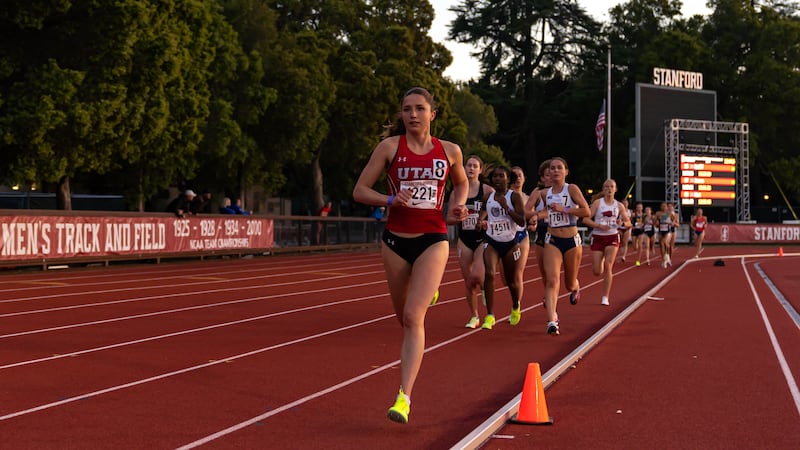
“Mainly, I just keeping belief in myself, because I have had a lot of injuries. Most years, I have had an injury, so I have had to come back a lot,” she said. “So I really appreciate my coaches who have believed in me and what I have to do. I feel like it is nice to finally be at a point where I am feeling good at the end of a track season.”
Williams lived in Las Vegas when she was young, and always dreamed of returning to America after her family moved back to England. She joined a company in England that specializes in helping athletes land at U.S. colleges, and that’s how she became acquainted with the U. seven years ago.
“I came on a visit here and I fell in love with it. I love the mountains, and the scenery here is like nothing else. I think we should be known as the mountain campus of the whole NCAA. It is insane,” she said.
She was also impressed by Kepler and his training and teaching methods.
“And I loved the girls on the team, the energy,” Williams said. “It is something I think we still have. But yeah, that’s how I ended up here.”
More milestones reached in 2023
Kepler said Plourde and Venters should be able to move onto nationals in Austin, Texas, but doesn’t rule out athletes such as Williams, Erickson and Denis, the hurdler, from moving on as well.
In all, 12 Utah women will compete in Sacramento, including members of the 4x400 relay team.
“I think we certainly have a couple (runners) who have a really good chance, and after that I think we have got two or three more and maybe that relay (team) that have solid chances,” Kepler said.
For the first time in program history, the Utes won the Relays Cup title at the 113th running of the Drake Relays.
How have they revived the program?
“We know who we are and we try to stick to that. We only look for kids who can do multiple things, or kids that can (make an impact),” Kepler said. “… If you are scoring in the Pac-12 meet, you are probably a regional qualifier and making it into the first round of the NCAA. So those are the kinds of the kids we look for, who have potential for that. And then if they blossom from there the way that several of our kids have now and in the past, that’s obviously what we are trying to get to.”
Williams said of all the theories that have been put out there regarding Utah’s rise to respectability in the college track and field world, her preferred one is that there has been a gradual change of thinking. The Utes have relished the role of going from hunter to hunted.
“I would say the biggest change is something you can’t really measure — mindset,” she said. “Because when I first got here, it was like a wide-eyed feeling. Like, ‘Oh wow, we finally made it to this meet, we finally won this meet.’ It was year on year, gradually improving.
“But now, it feels like we should be here,” Williams continued. “And not in an (arrogant) way. We deserve to be here, to be this good, to have really good teammates with really high goals. That’s been incredible. I would say that is the biggest change, because it is now we know we are going to qualify people to nationals, rather than ‘Wow, we got this many people to the first round.’ Yeah, the mindset has changed.”
